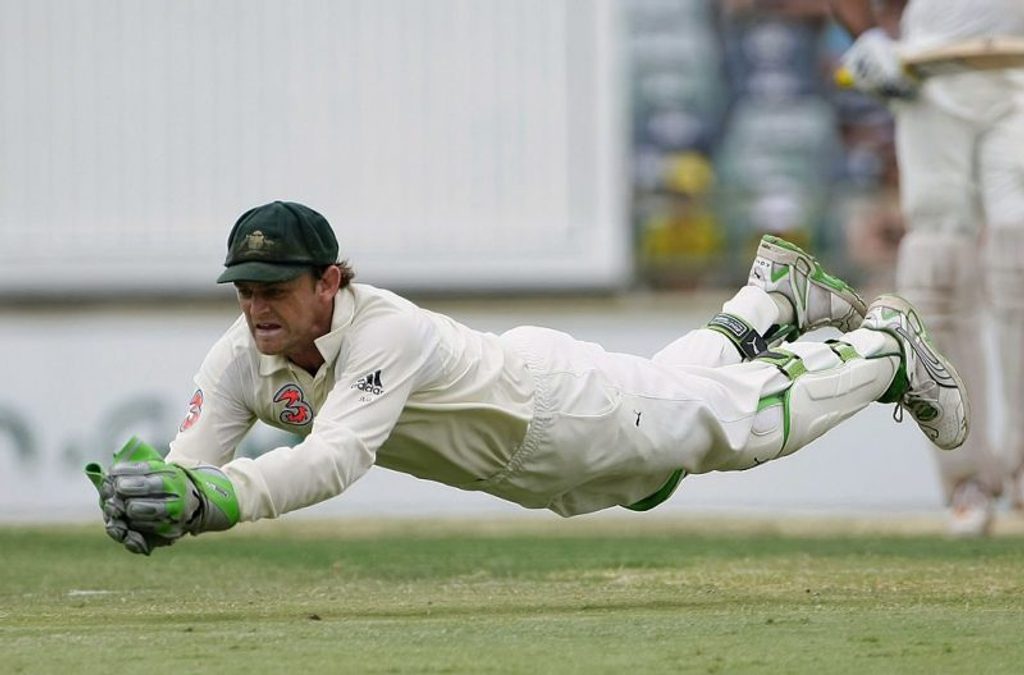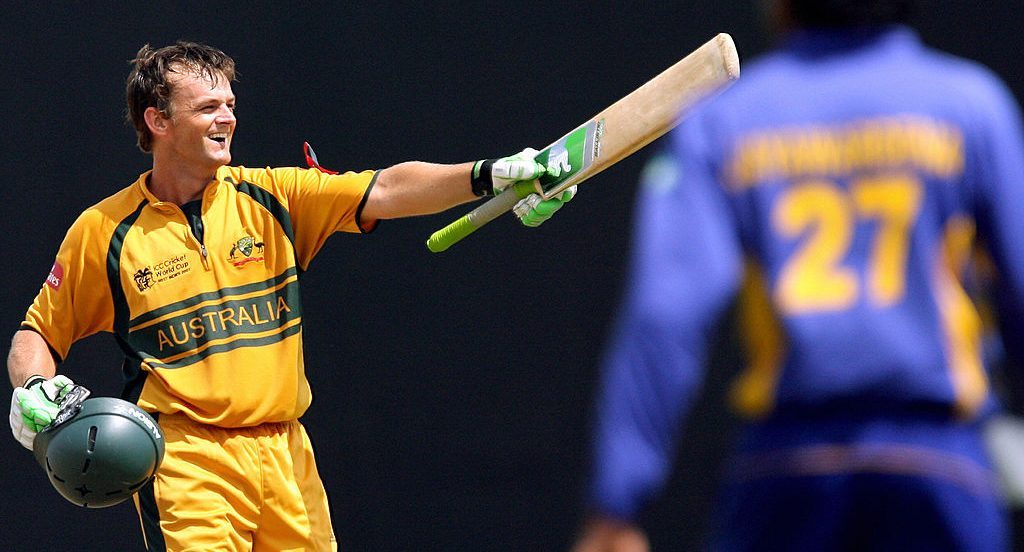
First published in issue 13 of Wisden Cricket Monthly, the legendary Kumar Sangakkara writes on the country-boy revolutionary whose unassuming brilliance would change the game beyond recognition.
Adam Gilchrist altered cricket forever. He overthrew the old ideas of what a wicketkeeper-batsman should be. Selectors’ perceptions changed. The balance of teams changed. And it was all thanks to one man.
A wicketkeeper’s life used to be simple. They would earn a living by being the best gloveman in the side. Suddenly that changed. With Gilchrist, it became an all-rounder’s role, where competency with the gloves was essential but you had to be a match-turning batsman down the order. Wicketkeepers realised that the heat was on for them to redefine themselves as batsmen of worth as well. Keepers all around the world were in complete distress! Test cricket was forever changed.
As a gloveman, and this is not remarked upon enough, Gilchrist was impeccable. He had great technique. He used the old Australian style, as opposed to the English way, of catching the ball well in front of his eyes, following the line of the ball with arms outstretched and having enough ‘give’ to take it in and soften the impact.
 “As a gloveman, and this is not remarked upon enough, Gilchrist was impeccable”
“As a gloveman, and this is not remarked upon enough, Gilchrist was impeccable”
He was exceptional standing back against fast bowling and superb standing up to Shane Warne too. When Warne was at the top of his game, turning the ball on every surface and especially when he was bowling in tandem alongside Stuart MacGill in the subcontinent, Gilchrist upheld the tradition of Australian wicketkeeping excellence in the wake of the great Ian Healy.
But more importantly he brought this match-changing ability with the bat. He opened in one-day cricket and batted No.7 in Tests, with complete freedom to play explosively in either role. He featured in so many partnerships, often with the tail, that were telling for an Australian side that were completely dominant at the time.
We first got a sense of Gilchrist’s power in 1999, in just his second Test match. Australia were down and out against Pakistan, five wickets down, and well over 200 behind chasing 369. Gilchrist came together with Justin Langer and counterpunched spectacularly, making an unbeaten hundred to win Australia the match.
There was also that incredible century against England at Perth, when he faced just one ball more than Viv Richards’ then-Test record of 56 balls.
The fact that he was an opening batsman in one-day cricket meant that he could transfer the fundamentals of a sound technique to counter the new ball that would be made available after 80 overs. His hitting ability, his raw power and strength, and his hand-eye coordination, were outstanding. An hour of Gilchrist was often enough.
Sri Lanka were on the wrong end of a Gilchrist special at the 2007 World Cup final. He’d had a terrible tournament up until then, and went out to open the batting with a squash ball in his glove, and smashed an unbelievable 140-odd! We were helpless to stop him. There was a lot of criticism of the use of the squash ball, which was an idea he’d formulated to allow him to hit the ball straighter. Many people said it should have been illegal. All I would say to that is that I challenge anyone to bat as well as Adam Gilchrist did with a squash ball in their glove.
 Adam Gilchrist celebrates a century against Sri Lanka in the 2007 Cricket World Cup
Adam Gilchrist celebrates a century against Sri Lanka in the 2007 Cricket World Cup
We had a lot of theories about how to get him out. Left-arm seam sometimes bothered him, as did good off-spin. For a while, conditions in the subcontinent were such that we could limit his threat. But there was always the sense that if we didn’t get him early he could really hurt us.
The only time I’ve seen him consistently becalmed was against England in 2005, when Andrew Flintoff went around the wicket and managed to take the ball away from him towards the slips. So there were chinks in his armour. But the fact that when he did attack he had the full repertoire meant that he could very easily reverse the pressure. There was always a risk-versus-reward equation, and more often than not Gilchrist came out on top.
 “An hour of Adam Gilchrist was often enough”
“An hour of Adam Gilchrist was often enough”
He was always a gentleman cricketer. I admired him a lot. We had many conversations off the field, but rarely about cricket. He was also known for walking every time he nicked it behind, most famously in the 2003 World Cup semi-final against Sri Lanka.
In world cricket there are very few people who actually walk consistently every time they nick the ball. Walking once or twice, you see it. But walking for non-obvious nicks that only the bowler or the wicketkeeper has heard doesn’t really happen at all. But in Gilchrist’s case, he simply played the game as he saw it.
He was passionate about the game and of course he cared about the result, but at the same time he had great freedom to express who he was. He took the dangers and risks of playing the way he did, and took them equally. He was at peace with the way he played the game.








